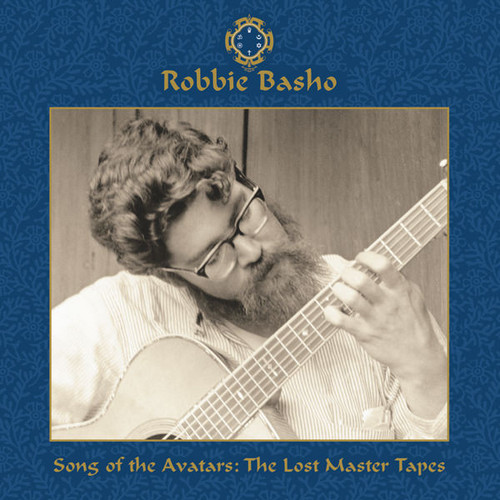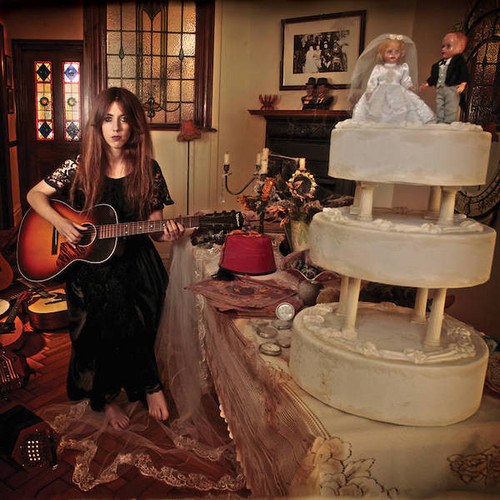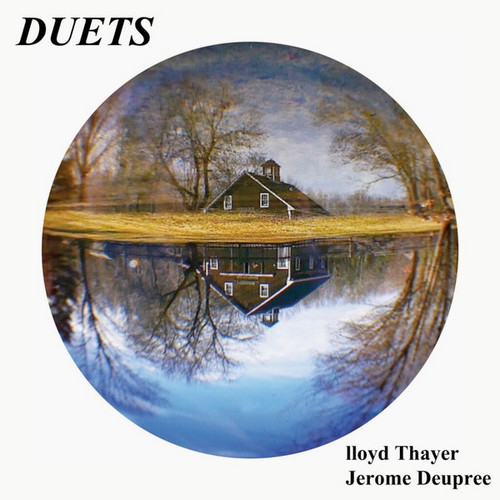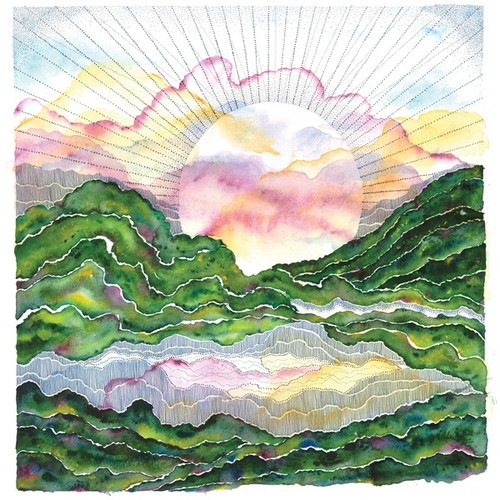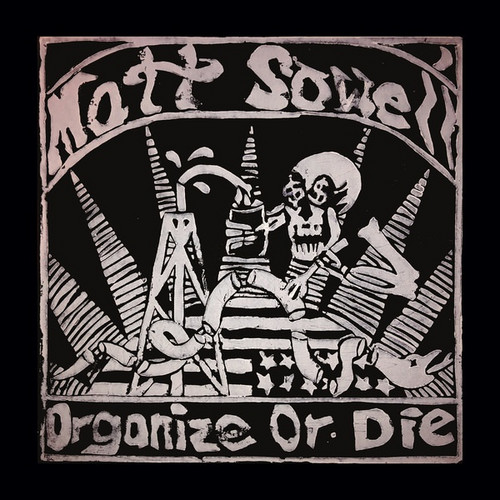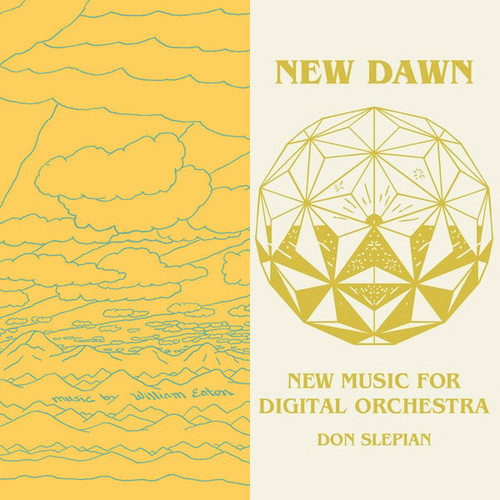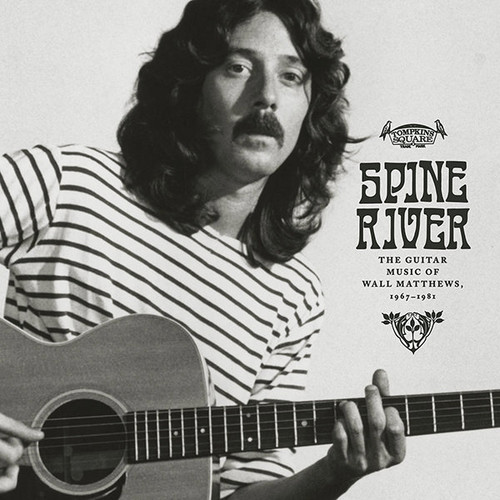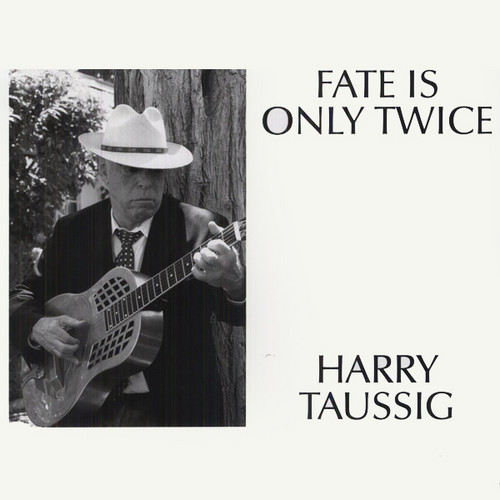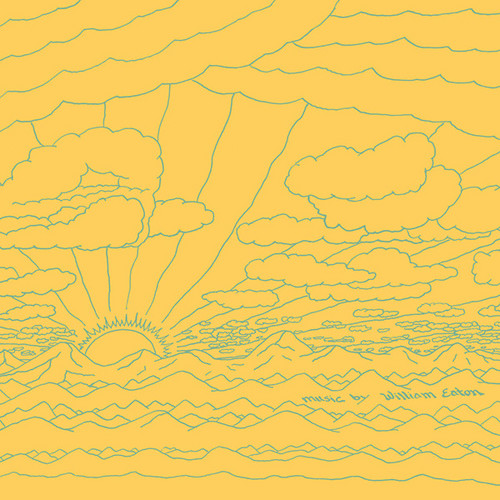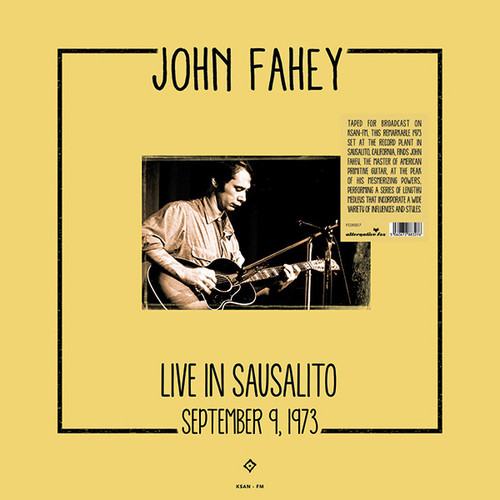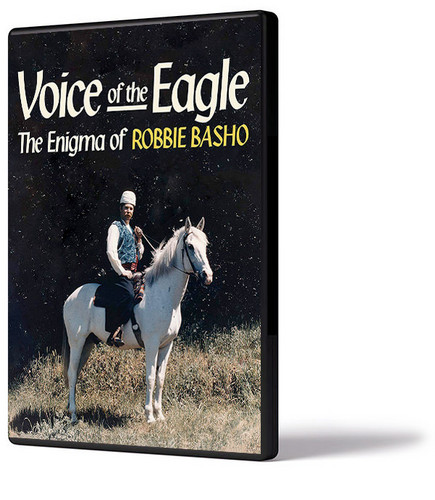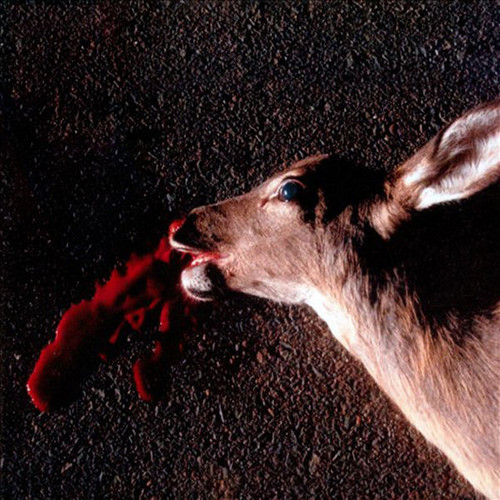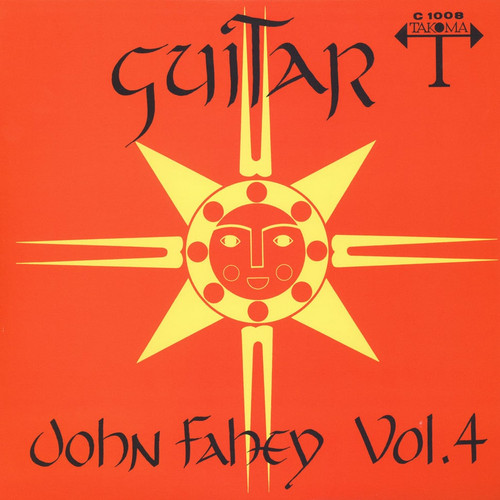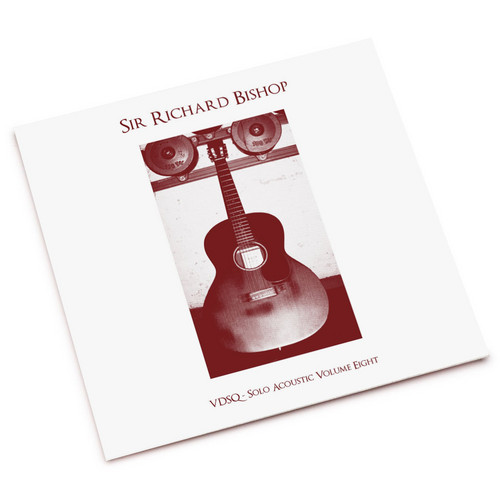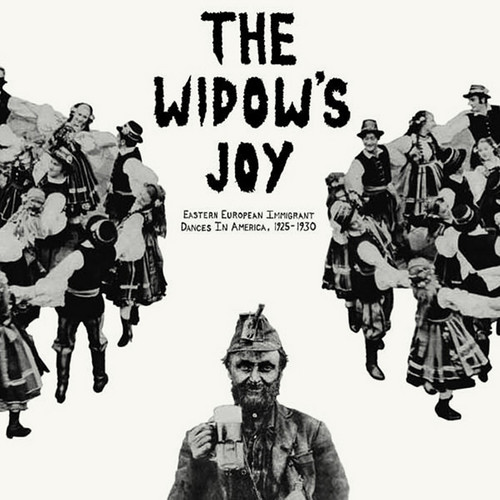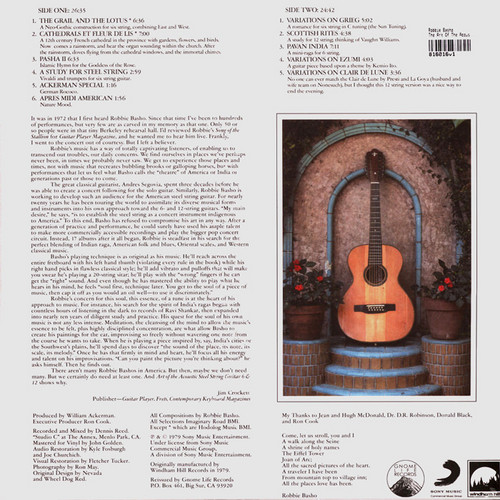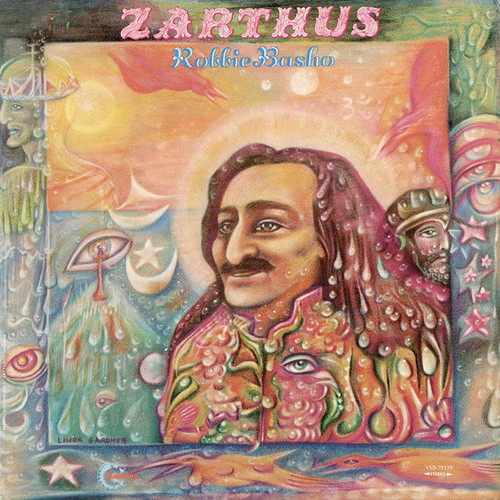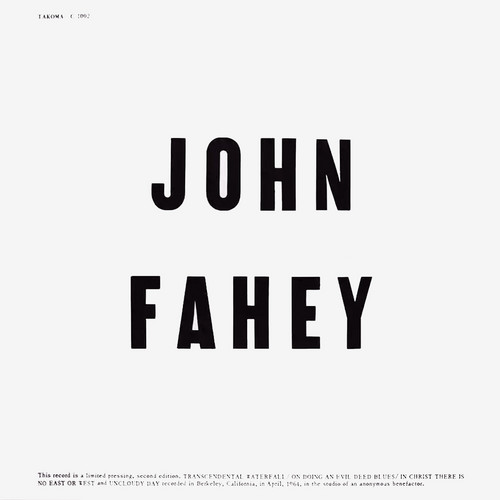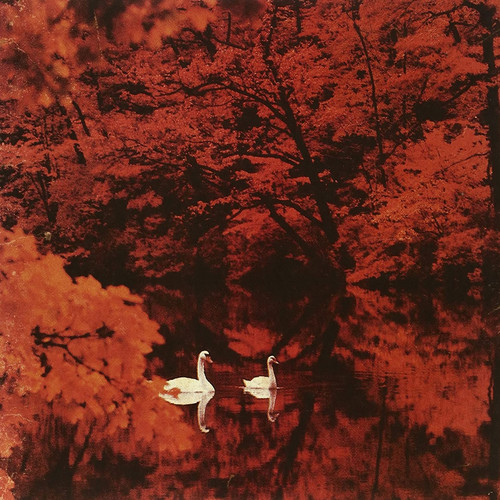Folk /
Selections from Song of the Avatars: The Lost Master Tapes
**Housed in top-lifting boxes with gold foil, poster and booklet** Robbie Basho (1940-1986) is widely regarded as one of the progenitors of what’s commonly known today as American Primitive guitar. Growing up in Maryland alongside neo-traditional guitar explorers John Fahey and Max Ochs, Basho’s path would take a decidedly different turn, bringing Hindi, Indian, Japanese and Native American musical traditions into his work. His albums for Takoma and Vanguard have left an indelible trail of influ…
Strange Lights Over Garth Mountain
Welsh musician Gwenifer Raymond’s 2018 debut album, You Never Were Much of a Dancer, introduced a new voice on acoustic guitar, receiving 5 stars in The Guardian, big spreads in Mojo and Uncut, and airplay on multiple BBC programmes. This led to months of touring on the European festival circuit.
Her second album, Strange Lights Over Garth Mountain, finds Raymond ranging into unexplored experimental territory, drawing from her Welsh roots.
Song of the Avatars
Sold out at source, few copies availble. Robbie Basho (1940-1986) is widely regarded as one of the progenitors of what’s commonly known today as American Primitive guitar. Growing up in Maryland alongside neo-traditional guitar explorers John Fahey and Max Ochs, Basho’s path would take a decidedly different turn, bringing Hindi, Indian, Japanese and Native American musical traditions into his work. His albums for Takoma and Vanguard have left an indelible trail of influence across generations of…
Duets
**Edition 200** Mind-blowing set of duo improvisations from a string player once known as the King of the Dobro, and the original drummer for Morphine. Long based in the Boston area, Lloyd Thayer is a master musician as well as a teacher, a street performer (retired, I think) and a collector of esoteric stringed instruments (many of which are played with a slide). We were introduced to his work by Glenn Jones, who more or less grabbed us by the collars and hauled us to see him down at the 1000 I…
Powers/Rolin Duo
Hot on the heels of last year's Matthew J. Rolin LP (FTR 502LP, 2019), here is a new duo recording featuring Rolin's acoustic twelve-string and the hammered-dulcimer of Jen Powers. They've had a couple previous cassettes, but I've never seen 'em! If you have, I can offer you something fine in trade. As with his first LP, Rolin's command of his guitar is quite wonderful to hear. He uses the whole breadth of the twelve-string's harmonic potential, which creates a wide surging stream of sound. Powe…
Organize or Die
Minneapolis guitarist, Matt Sowell, is another of the many great players we were first introduced to at the Thousand Incarnations of the Rose festival in Takoma Park, MD. Matt played a richly dark and brooding set at Rhizome, with a style deeply indebted to the American Primitive tradition. His set had the raw strength of Fred Gerlach, the precision of Peter Lang, showed a country/blues influence that seemed to reference Fahey, and possessed the raga-meets-ragtime eclecticism of Jack Rose. We we…
Music By William Eaton / New Dawn
This bundle includes two LPs recently issued by Canadian imprint Morning Trip.William Eaton "Music By William Eaton" (1978)Originally released in 1978, Music By William Eaton is a private-press album from the accomplished experimental stringed instrument builder. The atmospheric recording techniques, mixed with a hint of John Fahey/Takoma-lineage make for a listening experience akin to the mountainscape drawing represented on the album cover. The experience may seem simple at first, but like any…
Spine River : The Guitar Music of Wall Matthews, 1967-1981
Guitarist Wall Matthews is surviving member of experimental 70's collective, Entourage. Sampled by Four Tet, their name whispered in reverence through the decades, Entourage forged bold musical ideas on their two rare ’70s Folkways LPs. Tompkins Square released Ceremony of Dreams : Studio Sessions and Outtakes, 1972-1977, in 2018 to wide acclaim. Spine River : The Guitar Music of Wall Matthews, 1967-1981 is a collection of unreleased or obscure music by the master guitarist. This volume will be …
Fate Is Only Twice
Released as a short-run private press LP in 1965, Harry Taussig's 'Fate Is Only Once' has long been a coveted collectible among American Primitive guitar enthusiasts. The album presages the broader movement. Acoustic musicians were still largely stuck in a rigid "Folk" mindset in 1965, and there are just not that many other examples of the exploratory guitar sounds found on 'Fate' during this time period. Alternating between haunting originals and jaunty blues-based traditional numbers, this abs…
Music By William Eaton
Originally released in 1978, Music By William Eaton is a private-press album from the accomplished experimental stringed instrument builder. The atmospheric recording techniques, mixed with a hint of John Fahey/Takoma-lineage make for a listening experience akin to the mountainscape drawing represented on the album cover. The experience may seem simple at first, but like any great trip in nature, new details consistently reveal themselves upon each listen. “When I started building instruments, p…
Live In Sausalito, September 9, 1973
The finger-picking guitarist and blues enthusiast John Fahey enjoyed a long, influential and distinguished career. Born in Washington DC in 1939 and raised in Takoma Park, Maryland, he lauched his own Takoma label to issue self-produced work in the late 1950s and then delivered his master's theses on the blues of Charlie Patton at UCLA. Then, while based in the radical town of Berkeley, California in the San Francisco Bay area, began issuing filed recordings of forgotten blues legends such as Bu…
Voice of the Eagle: the Enigma of Robbie Basho
Voice of the Eagle: The Enigma of Robbie Basho is a feature-length documentary on the extraordinary life and visionary music of the American guitarist, singer and mystic Robbie Basho. Before his bizarre death at the hands of a chiropractor, Robbie Basho was sure that his compositions would not outlast him. Orphaned during infancy, diagnosed with synaesthesia (a union of the senses that caused him to interpret sound as color) and claiming to be the reincarnation of a 17th century poet -- the Balt…
Huge Fluid Freedom
Huge Fluid Freedom is a singular melding of American primitive & instrumental guitar rock by one of the most important young guitarists currently mining the underground. Sean Smith
conjures fire and sweat, dew and ash through the guitar. From his Bay
Area locale, Smith has been elevating the language of the acoustic steel
string & exploring volume shredding electric excursions
concurrently for the better part of the last decade, forging a tightrope
walking hybridization of 2 seemingly disp…
Guitar Vol. 4 / The Great San Bernardino Birthday Party And ...
500 copies. Orange vinyl Originally released in 1966. John Fahey's never recorded an album that was more thoroughly of its moment. From the groovy flute and twangy sitar accompaniment to the backwards guitar, this Birthday Party is a charmingly trippy 60s time capsule. But it isn't a two dimensional one. The album gains immense depth from the tension between his sweeping, fingerpicked melodies and discordant string-battery. It's the audible battle between yearned for rose colored luminescence a…
Solo Acoustic Volume Eight
2025 Stock. Sir Richard Bishop returns with another chapter in his ongoing exploration of solo acoustic guitar territories. Solo Acoustic Volume Eight presents a three-part suite titled Hypostasis - a extended meditation that finds the master guitarist weaving together familiar themes with entirely new compositional ideas across both sides of the vinyl.
Known for his legendary work with Sun City Girls and his deep immersion in global guitar traditions, Bishop has spent decades developing a style…
The Widow's Joy - Eastern European Immigrant Dances In America
Sound American and Canary Records collaborate for The Widow's Joy: Eastern European Immigrant Dances in America 1925-1930, the first release of Sound American Records. Canary Records curator Ian Nagoski has crafted the ultimate Lemko party record as a labor of love for the forgotten music of the Austro-Hungarian diaspora in the midwest region of the United States. The Widow's Joy with a cover by Mississippi Records' E. Isaacson features the music that helped immigrant coal workers and laborers f…
Art of the Acoustic Steel String Guitar 6 & 12
Mindblowing!!!!!! Originally released in 1979, "Art of the Acoustic Steel String Guitar 6 & 12" was Robbie Basho's 15th record, and his magnum opus of solo guitar. It is the culmination of his life's effort to usher guitar music into a new artistic paradigm, and to "establish the steel string as a concert instrument indigenous to America."This album represents Basho’s most technically fine guitar work. In both composition and performance, the album is enormously complex and yet conveys an effort…
Zarthus
Robbie Basho's Zarthus, dating from 1974, is, in his own words, "An album of Persian, Arabic, Westerns Themes (sic), woven together into a single 'Fabric D'Amour' to cover the barren manekin (sic) of modern times." Easily the album that most indulges his obsessions with Eastern modal scales and odd meters, and even Western classical themes. All of it is grounded in Basho's guitar though, and the discs first two tracks, "Zarthus" (dedicated to Meher Baba, Pete Townshend's guru) and "The Lord Of T…
Blind Joe Death
John Fahey’s first album, released in 1959 for the record label he co-founded, is a beautiful introduction to this incredible artist. Blind Joe Death remains a wonderful album and displays Fahey’s ability to re-interpret the blues and folk idioms prevalent at the time in his own inimitable style. The album's mystique probably owes more to the 1959 record's rarity (and utter oddity in the context of its era) than the music, in which Fahey's experimental blues-folk acoustic fusion is just be…
Red Favorite
Red Favorite, a cycle of compositions for guitars, electronics and voices created by Jeremy Pisani was first released as a limited edition CD on Spirit of Orr and is now offered, as it was originally conceived to appear, on an LP. He moved closer and looked through the peephole. And he saw: the world stretched out before him, a quiet and gentle space with a broad expanse of grass that practically glistened in its greenness. A sparkling brook ran through the meadow in the middle distance, and now…
